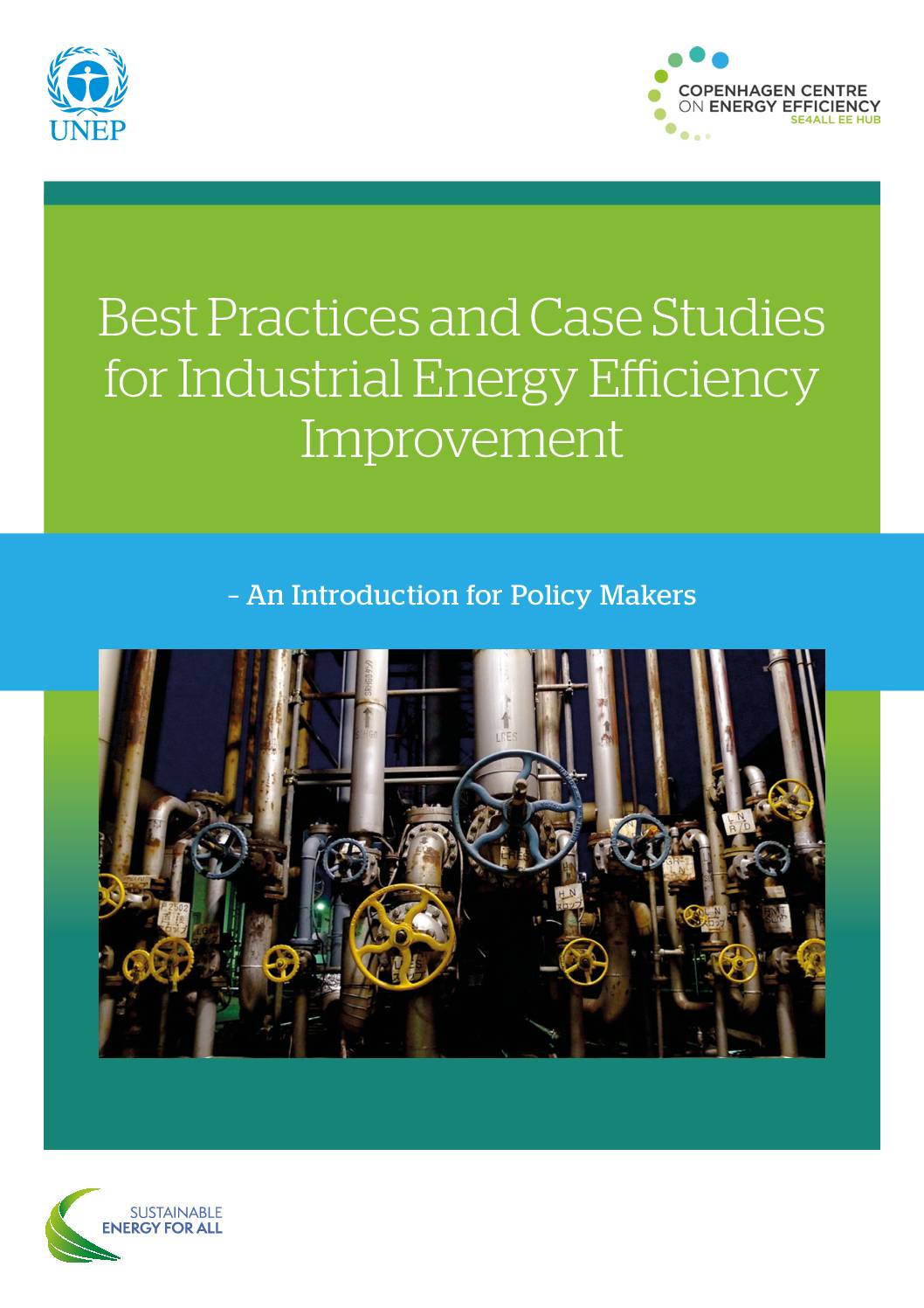Two major international agreements reached in 2015 will be guiding the future energy development patterns in all sectors, including industry. At the United Nations General Assembly in September 2015, global leaders adopted 17 Sustainable Development Goals to mobilise efforts to end all forms of poverty, fight inequalities and tackle climate change by 2030. Goal 7 is specifically about providing clean and affordable energy to all and energy services will be important for the achievement of all goals. In December 2015, the 21st session of the Conference of the Parties (COP21) to the UN Framework Convention on Climate Change established the Paris Agreement to address the urgent challenge of global climate change. A total of 160 Intended Nationally Determined Contributions (INDC), reflecting 187 countries (EU submitted one INDC for its 28 member states) provides the foundation for the Paris Agreement presenting concrete plans and targets for climate change mitigation and adaption actions by 2030. Energy efficiency is one of the key mitigation options included in plans of many countries.
Globally the industrial sector is responsible for around one-quarter of total energy consumption, and in many countries it is concentrated in a small number of industrial facilities, making it relatively easy to identify the big energy consuming enterprises. Therefore, improving energy efficiency in the industrial sector is being prioritised in many countries. Investment to improve industrial energy efficiency can deliver large energy savings, improved productivity, and reduced environmental pollution. However, in many cases information, financial, and regulatory barriers are continuing to prevent enterprises from fully realising the potential opportunities offered by improving energy efficiency. A wide range of policies and programmes can be adopted to help overcome these barriers.
Sharing best practices, particularly various approaches towards policy making and success stories can help countries accelerate energy efficiency improvement, and countries are interested to learn from international experiences in these areas. This book is aimed at supporting countries in industrial energy efficiency policy making through sharing international experiences. It explains preconditions for successful implementation of policies and programmes while providing concrete examples. The overall objective is to stimulate joint actions from business, governments, and civil societies to help realise the SE4All goal of doubling the global energy efficiency improvement rate by 2030.
The authors of this book, Steven Fawkes, Kit Oung, and David Thorpe have extensive experiences in supporting the implementation of industrial energy efficiency projects. The book has been reviewed by Xianli Zhu and Timothy C Farrell from the Copenhagen Centre and Stephane de la Rue du Can from Laurence Berkley National Laboratory. Timothy C Farrell also helped with editing the book. Xianli Zhu coordinated the preparation of this book and was supported by suggestions from others at the Copenhagen Centre.
The Centre plans to bring out as well as make available energy efficiency best practices publications of various partners to stakeholders, and this publication exploring international best practices for energy efficiency improvement in the industrial sector is a part of the plan.
Download sourceShare this

Sectors: Cross cutting, Industry, Power sector, Renewables
Country / Region: Denmark, Europe, France
Tags: C2E2, climate change mitigation, energy, energy efficiency, energy services, global climate, industrial energy efficiency, industry, international agreements, international development, sustainable development, Sustainable Development GoalsIn 1 user collection: C2E2 Publications
Knowledge Object: Publication / Report
Published by: C2E2
Publishing year: 2016
Author: Steven Fawkes; Kit Oung; David Thorpe
